On April 15th, I was fortunate to be able to attend InnovFest 2014 organized by National University of Singapore (NUS). The theme for InnovFest 2014 is “Asian Innovations Going Global” and the festival featured an exciting collection of Asian innovations, research, technologies, product presentations, and discussion panels. 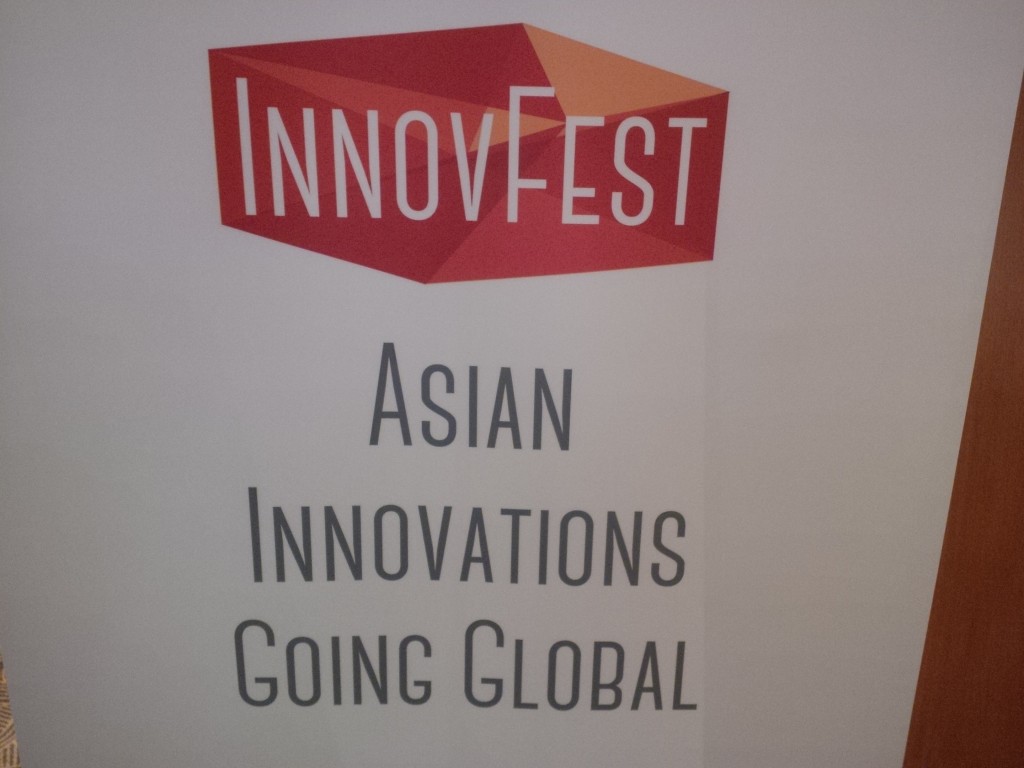 Some of the innovations and technologies that caught my attention included: 1. Interclo - Disaster relief clothing with multiple applications, such as a jacket, a shawl, a sleeping bag, and a blanket.
Some of the innovations and technologies that caught my attention included: 1. Interclo - Disaster relief clothing with multiple applications, such as a jacket, a shawl, a sleeping bag, and a blanket.  2. Neural prostheses by Sinapse.
2. Neural prostheses by Sinapse. 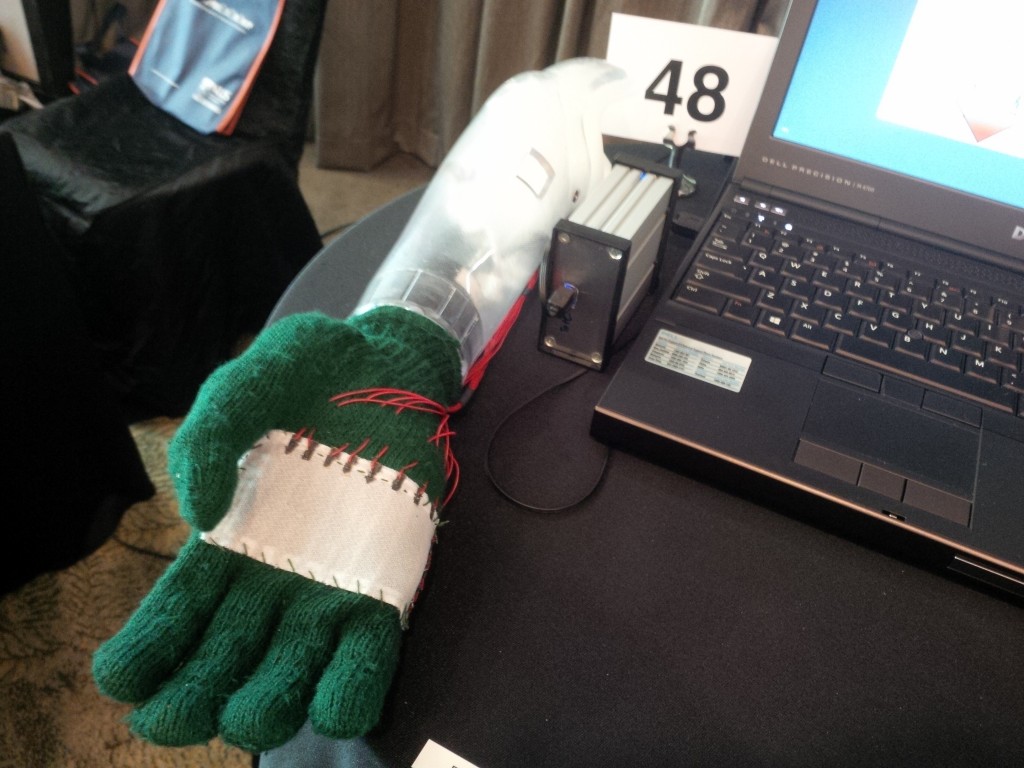 3. Green Steel - Bamboo reinforced concrete by Singapore-ETH Centre Future Cities Laboratory.
3. Green Steel - Bamboo reinforced concrete by Singapore-ETH Centre Future Cities Laboratory.  4. T-Jacket which simulates hugs to calm and comfort individuals.
4. T-Jacket which simulates hugs to calm and comfort individuals.  5. Cacstix which captures tiny micro plastics in laundry wastewater before it is released into the ocean.
5. Cacstix which captures tiny micro plastics in laundry wastewater before it is released into the ocean.  Beside exploring the latest innovations, research, and technologies, I also managed to attend interesting product presentations and discussions panels on topics such as technology transfers from research to market, innovations in healthcare for the ageing and silver industry, and next generation learning.
Beside exploring the latest innovations, research, and technologies, I also managed to attend interesting product presentations and discussions panels on topics such as technology transfers from research to market, innovations in healthcare for the ageing and silver industry, and next generation learning. 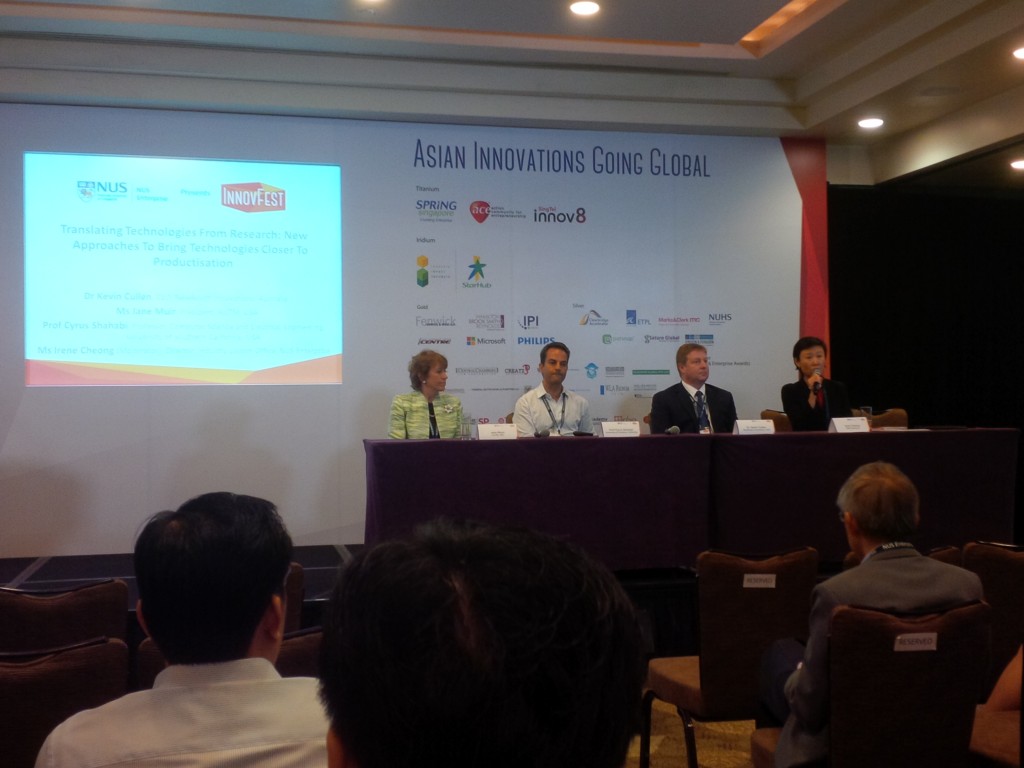
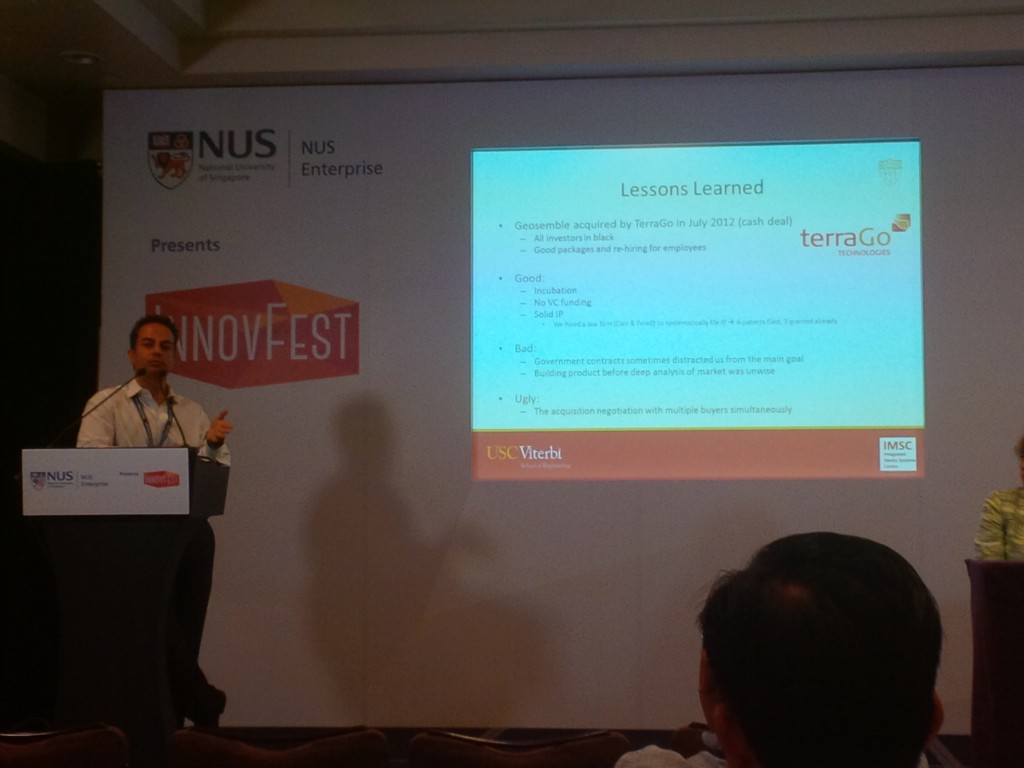 Amongst the panels, I liked the discussion on next generation learning moderated by David Lim (Director, Technical Audience Marketing, Developer & Platform Evangelism, Asia Pacific Region, Microsoft Operations Pte Ltd). During the discussion, Dave Cho (founder and CEO of Classting) and Stanley Han (co-founder and CEO of Koobits) shared their experiences on building an edu-startup and provided their insights into the online learning market.
Amongst the panels, I liked the discussion on next generation learning moderated by David Lim (Director, Technical Audience Marketing, Developer & Platform Evangelism, Asia Pacific Region, Microsoft Operations Pte Ltd). During the discussion, Dave Cho (founder and CEO of Classting) and Stanley Han (co-founder and CEO of Koobits) shared their experiences on building an edu-startup and provided their insights into the online learning market. 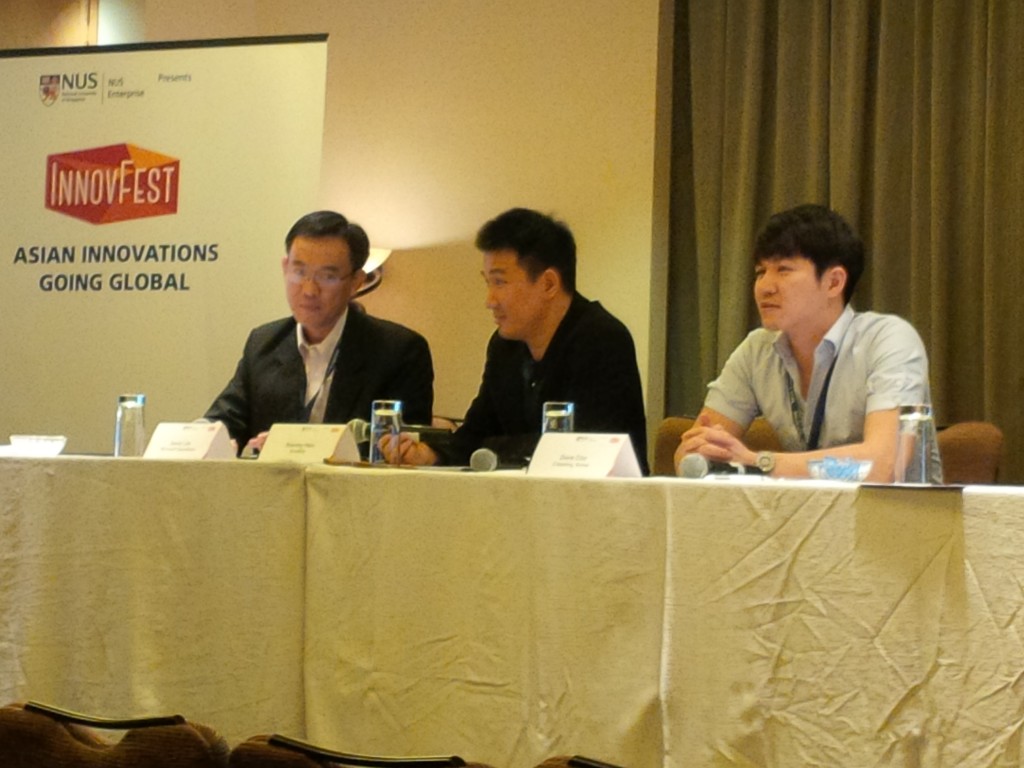 Three key market insights highlighted during the panel are: 1. The online learning market is still in its infancy, and the main challenge is to identify your market, your target audience, and your unique selling proposition (USP). As Stanley Ho pointed out, he spent approximately three years refining his business model, identifying and understanding the needs and behavior of his target audience, and developing products that addressed the needs of his audience while maximizing the benefits of the online learning platform. 2. The popularity of online learning will only serve to amplify the role of teachers by enabling each teacher to reach out to more students in geographically dispersed locations. One of the potential future of online learning platforms, such as Koobits and Classting, is to provide personalized learning experiences that is accessible to students from all over the world. 3. Monetization continues to be a challenge for edu-startups and you have to be passionate in your entrepreneurial pursuit despite a seemingly losing course of action. Although Classting has over 80,000 classes in its online edu-social platform and occupies 70% of the domestic market in South Korea, the platform continues to provide its services for free and will only explore monetization avenues in the near future. I would like to say a big “Thank You” to NUS for organizing a great gathering of entrepreneurs, researchers, and innovators to share and exchange ideas and technologies.
Three key market insights highlighted during the panel are: 1. The online learning market is still in its infancy, and the main challenge is to identify your market, your target audience, and your unique selling proposition (USP). As Stanley Ho pointed out, he spent approximately three years refining his business model, identifying and understanding the needs and behavior of his target audience, and developing products that addressed the needs of his audience while maximizing the benefits of the online learning platform. 2. The popularity of online learning will only serve to amplify the role of teachers by enabling each teacher to reach out to more students in geographically dispersed locations. One of the potential future of online learning platforms, such as Koobits and Classting, is to provide personalized learning experiences that is accessible to students from all over the world. 3. Monetization continues to be a challenge for edu-startups and you have to be passionate in your entrepreneurial pursuit despite a seemingly losing course of action. Although Classting has over 80,000 classes in its online edu-social platform and occupies 70% of the domestic market in South Korea, the platform continues to provide its services for free and will only explore monetization avenues in the near future. I would like to say a big “Thank You” to NUS for organizing a great gathering of entrepreneurs, researchers, and innovators to share and exchange ideas and technologies. 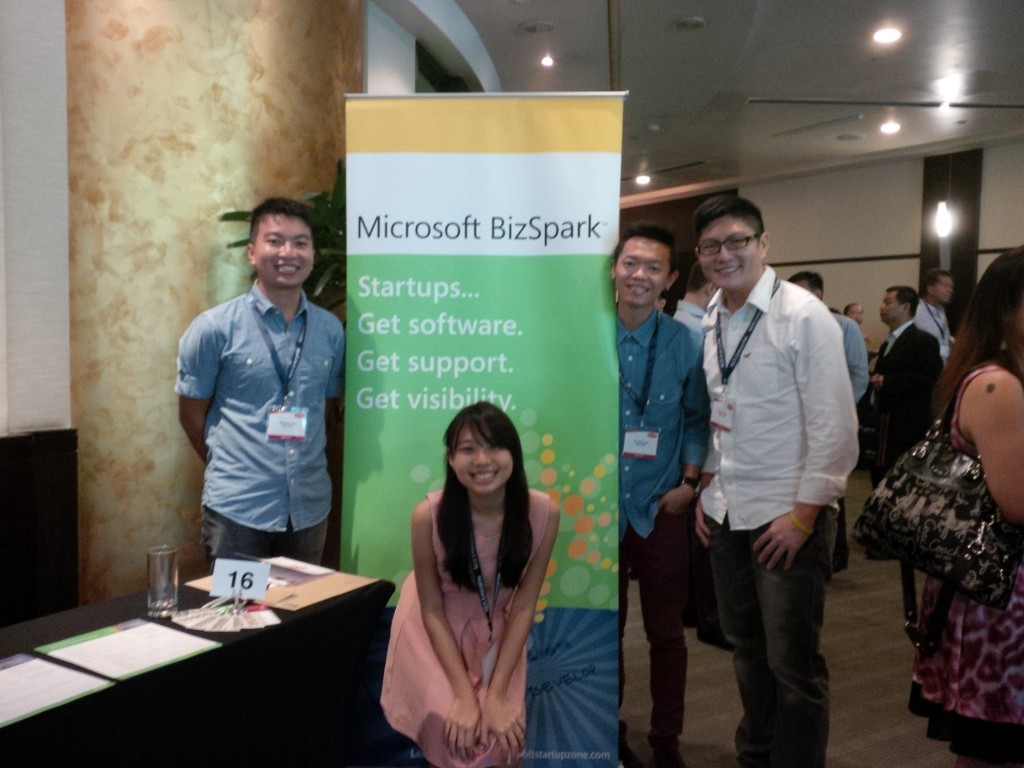 What do you think of InnovFest 2014? Do you have other great events to recommend for us to participate? Do share with us your recommendations in the comments below and we might just do a special report based on your recommendations!
What do you think of InnovFest 2014? Do you have other great events to recommend for us to participate? Do share with us your recommendations in the comments below and we might just do a special report based on your recommendations!